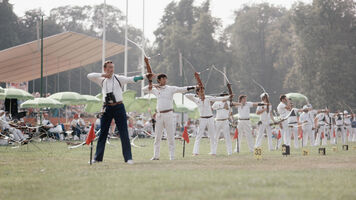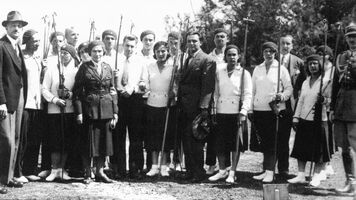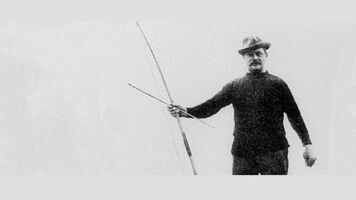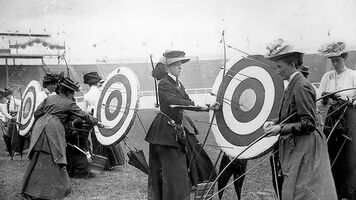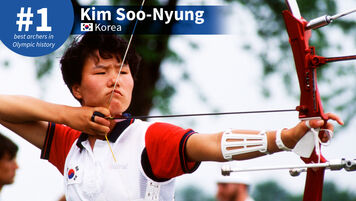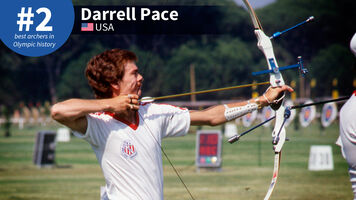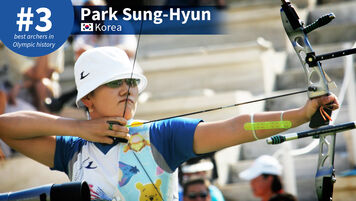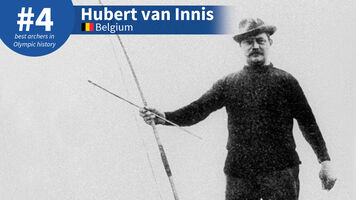Simon Fairweather: An archery retrospective
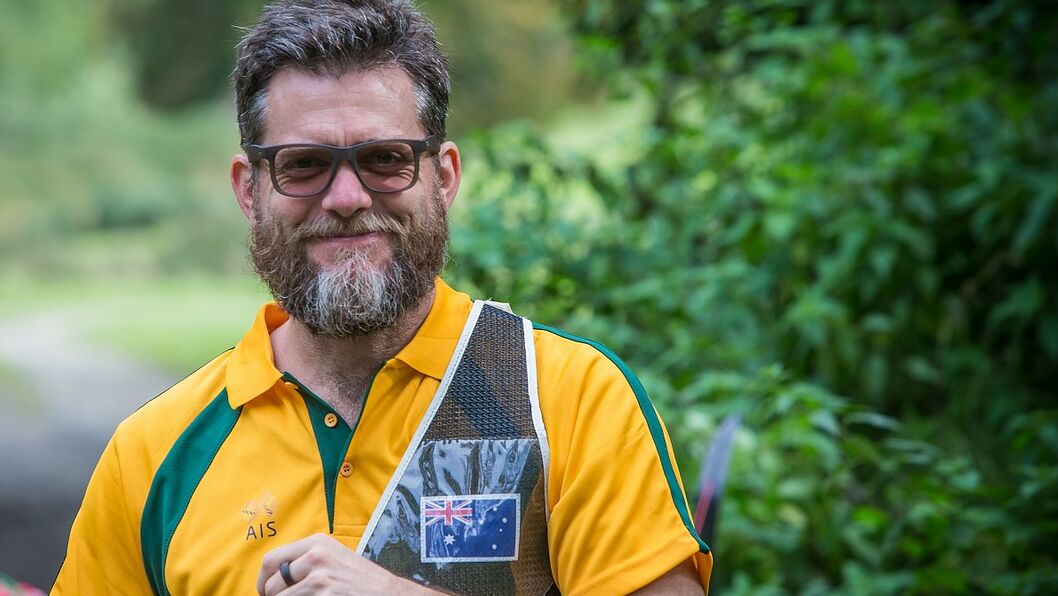
Simon Fairweather has dedicated more than 30 years of his life to archery. He was 14 when he started, he shot at five Olympic Games – winning one – and was national coach of Australia for a brief stint in 2009.
But, since then, he’s been absent from the international archery scene… until the World Archery Field Championships in Dublin, Ireland at the end of 2016 – and to compete.
With a rare opportunity to revisit one of archery’s legends, we spoke to Fairweather about his life since his big win in Sydney, those Olympic Games – and, mostly, about archery.
(This interview even took place on the 16th anniversary of the closing ceremony of the Games at which he took gold.)
What are your memories from Sydney 2000?
Simon Fairweather: “The difference between the Sydney Games and the other ones is that it felt familiar because I was in my home country, the people were easy to understand and the climate was familiar. It was a cool Olympics, too, because usually it’s summer when they are held – but because it was in the Southern hemisphere, it was really at the end of winter or spring, so it was much easier to acclimate for us. For some people it felt cold but for us it was just nice. I remember that a lot.”
“They were very positive Games, a very positive experience. The whole Australian team was in a good mood and very supportive with each other, which is something I didn’t feel at any other Games. It was easy, a happy time.”
You’ve been away for a while. What made you come back?
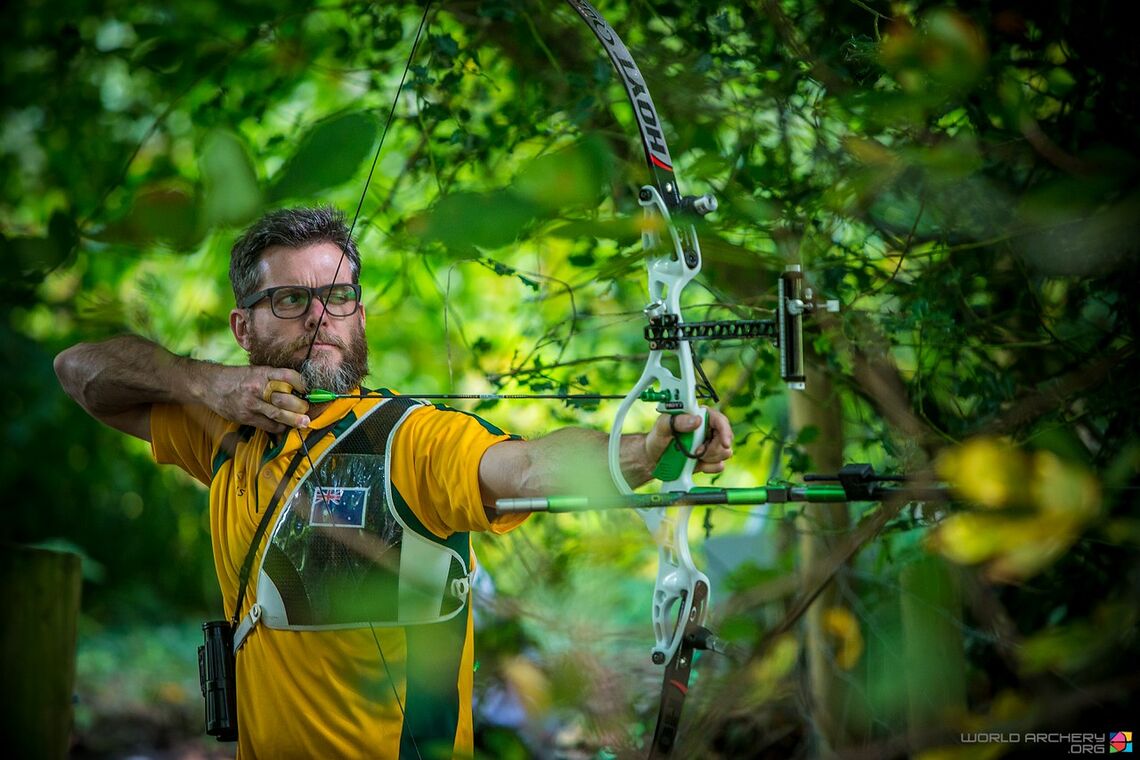
SF: “I came back once in 2014 just domestically in Australia because I wanted to try shooting with some of the ideas that I had as a coach for technique, for fun. After I stopped archery, I got a stiff back and stiff neck, my muscles atrophied.”
“So it made me wonder if shooting would help to relieve the pain and prevent it, so between that and the feeling of trying new things, I started again. Then, at the end of that year, I stopped again. I had some family issues that distracted me and I stopped shooting.”
“Now, I came back because my girlfriend Nicky is shooting and she wanted me to help her, to give her some company and shoot some arrows. Then she suggested coming to the field championships, see if we could make the team, and I wasn’t sure that we would, but here we are.”
How different is field from target?
SF: “One of the reasons I agreed to come here was because it was in Ireland, a place I’ve been never before, and because field is a lot less stress than a target event. You don’t have the same scrutiny and pressure. You’re standing in a small group, in the forest, everybody is in a good mood and it’s a lot more fun.”
“It’s more interesting, too. The targets are all different, you have to think about them a bit more, so it’s not just technique, it’s other things, too.”
Did you expect to get so far in Dublin?
SF: “I think the result was much better than it deserved to be with the amount of preparation I did, so I’m quite happy about it. I think the standard of shooting, since the last field that I shot in 1992, has changed and improved a lot.”
“I think I probably shot better than I did then, but back then I got better results. The standard of the top shooters in field now is pretty incredible, especially on the unmarked. Nobody misses anything. It’s impressive.”
The man you beat for Olympic gold in 2000, Vic Wunderle, is also here. Have you imagined a replay in Dublin?
SF: “I didn’t think I’d get that far. Vic has been shooting a lot more and his standard is probably a lot higher than mine at the moment, so I wouldn’t have been surprised to see him in the medals but I wasn’t really expecting to be there.”
“In some ways it makes it easy to shoot, you know. I always used to think that at events, you are either on the podium or it’s a disaster, it’s either yes or no.”
“Now, I’m trying to think about it in terms that there are many positions to come. You can be first or 50th and there’s all the positions in between, and they are okay, too. It takes off some of the pressure in terms of – is this going to be a success or not… or if I’m I going to enjoy or not? You can just shoot, you get a position and that’s the position you should be okay with.”
“You should just shoot and enjoy.”
What do you think would happen in another Vic-Simon final?
SF: [Laughs] “I don’t know if I would be as lucky next time with Vic. Who knows?”
What do you feel when you see him?
SF: “I like to see him. I don’t have any feelings. People ask about it a lot and it’s very curious. It’s always a good pleasure to see him, catch up on what’s going on in our lives now and what we doing.”
“Sydney is old history for us.”
If you could go back in time, is there something in archery you would change?
SF: “Maybe the perspective about the way I finished.”
“I think that after the world championships in 1991, I changed how I feel about competing for many years. I think there was more pressure than there would have been if I had got a result at a lighter day, if I built my way up gradually in getting better instead of all in one.”
“At my first Olympics in 1988, I came 16th. The next world championships, 20th. Then, I went to the field and came second, and then I came first at the world target, so suddenly ‘boom’, I’m at the top.”
“The next stage was either to stay there or fall off. If it would have taken longer to be at that point, maybe I would have been better prepared mentally to continue without so much pressure, but I think I was probably feeling the expectation of being successful. I either was successful or I had disaster. Maybe, If have been able to see things a little different, I would have had a more psychologically gentle journey rather than the feeling of failure many times.”
“Back then there weren’t many events on the calendar, while now you have world cups and many other events to go to. Before it was one important event per year and if that was a failure, you had to wait one year to overcome it. That made it a lot harder.”
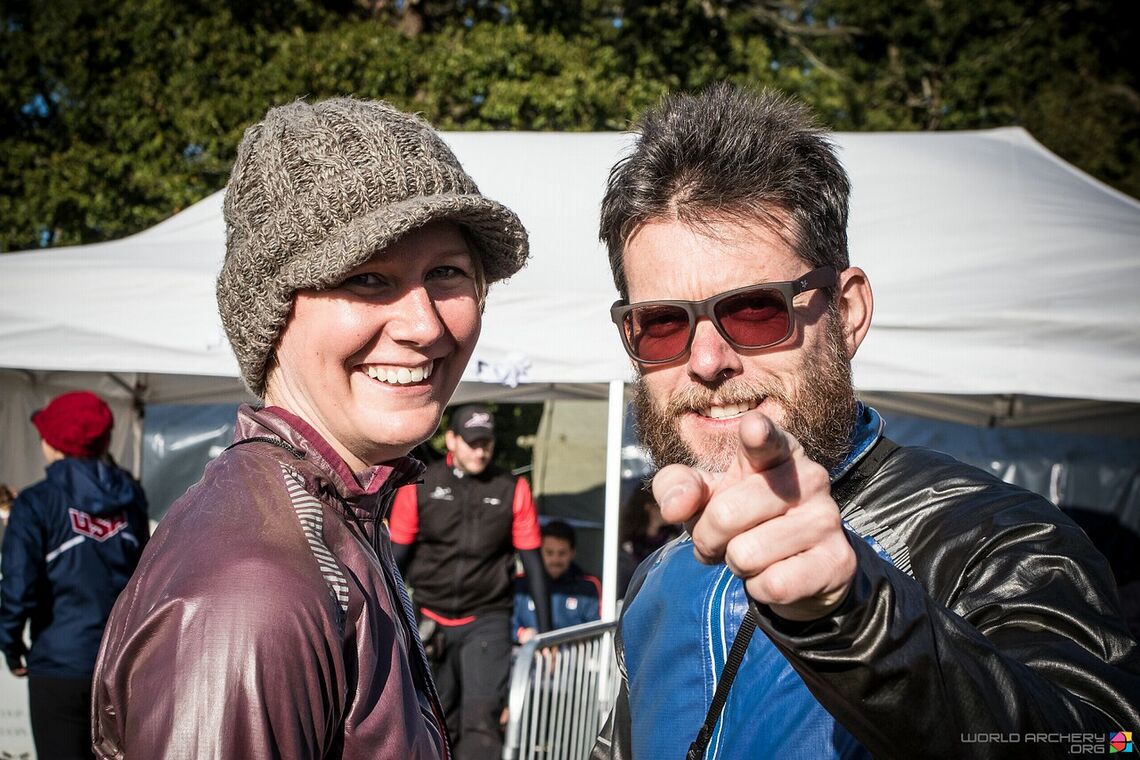
For how long do you imagine yourself shooting?
SF: “It depends on how many other hobbies I find in the meantime. I’m trying to just enjoy life, do different things, so if archery doesn’t take too much, or doesn’t provide too much pressure, I imagine I can keep going. Physically I’m not struggling too much, my eyes are not as good as they were, but I think 50 is the new 30, so let’s see what happens.”
Can we expect to see you again?
SF: “I’m not sure. A lot of things can happen. It’s been a good experience, it’s been fun to shoot some arrows.”
“I think I’m shooting a lot less pounds that I used to. I shot 42 pounds this event, which means I can train a little less without being so uncomfortable. It’s more sustainable in terms of time to be able to shoot a few arrows each day or every couple of days. Most of the time for this event I just shot 36 arrows at blind targets once a day, sometimes I missed days, sometimes I missed weeks and without bow poundage it didn’t make much difference.”
“If I keep doing that it’s not too difficult to come back again.”



